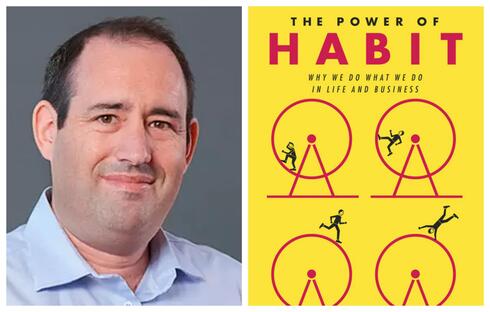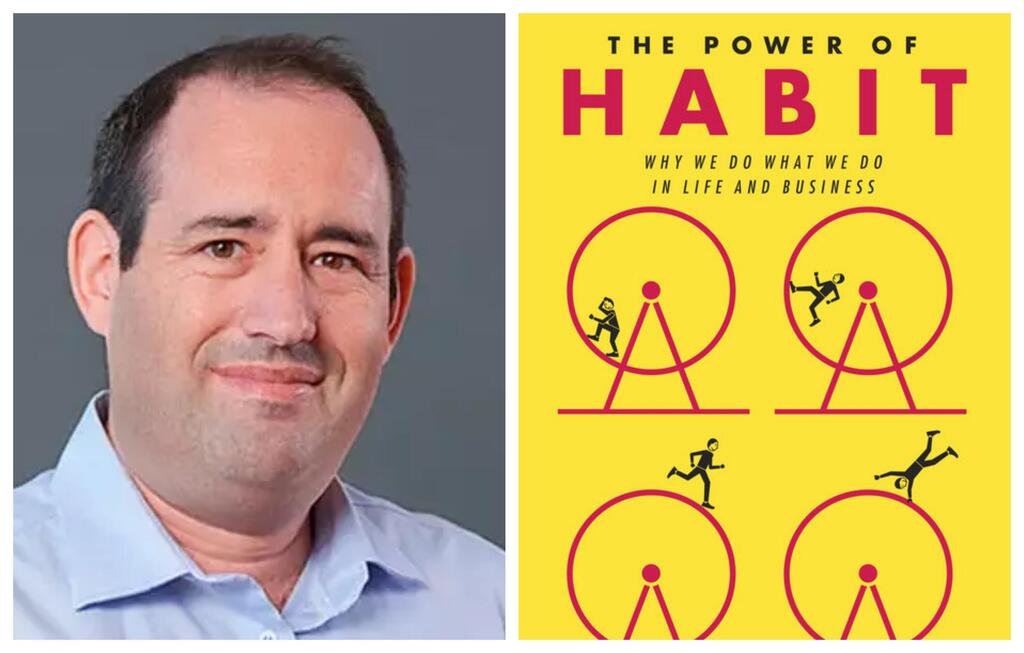
BiblioTech
CTech's Book Review: Understanding how habits can change our lives
Leor Barth, CTO at Priority Software, joined CTech to share a review of “The Power of Habit” by Charles Duhigg
Leor Barth is the CTO of Priority Software, a provider of open-cloud business management solutions. He has joined CTech to share a review of “The Power of Habit” by Charles Duhigg
Title: “The Power of Habit”
Author: Charles Duhigg
Format: Audiobook
Where: Home
Summary:
As we are all aware, our habits have a profound impact on our lives. Our good habits can make us better at whatever we do for a living, better at maintaining and improving our health and well-being, better at raising our families, and pretty much anything else that we find important in our lives.
The reason that habits are so powerful is that they have a compound effect. The more we repeat them, the stronger the effect that they will have on our lives – for good and for bad.
In the book "The Power of Habit", award-winning journalist Charles Duhigg presents us with a range of stories, each highlighting a different aspect of how habits work, how they are formed, and most importantly – how they can be changed.
Important Themes:
The main theme of the book is describing the neuroscience behind how habits function: One of the core purposes of the book is an in-depth explanation of the "cue-routine-reward" cycle. In a nutshell: A "cue" is a trigger that our brain responds to by doing something – the "routine". And the higher the "reward" that is associated with the routine, the more likely our brain will be to trigger that same routine the next time the cue is encountered.
As an example, a cue might be seeing a sign indicating that a branch of our favorite coffeehouse is nearby; the routine would be to order our favorite beverage from the store's app; and the reward would be to drink that special type of cappuccino that we love.
Once we understand this cycle, it's easy to understand that there are three reasons that forming good habits can sometimes be so difficult:
- The cue triggering the routine is not happening at the correct frequency.
- The routine following the cue is not reliably producing the expected reward.
- The reward is not powerful enough for our brain to automatically trigger the routine the next time we encounter the cue.
Another important theme is that habits have a huge impact not only on our personal lives but at other levels as well: Our families, the societies we live in, and the companies that we work at.
One of the most compelling stories in the book is about the CEO of one of the world's largest aluminum producers – Alcoa. This CEO, Paul O'Neill, left the company with a net income five times larger than before he arrived and with a market capitalization of $27 billion higher. He did this by focusing on a single organizational habit – improving worker safety. And as Alcoa got better at this organizational habit.
What I’ve Learned:
- How the "habit loop" works and how our routines gradually turn into habits that we do without thinking via the story of Eugene Pauly.
- How clever marketers manipulate our "craving brain" to their benefit via the stories of Fabreeze and Pepsodent.
- How to change habits by understanding and modifying the way that the cue leads to the reward – this is the story of American football coach Tony Dungy.
- How obsessing over daily habits is what makes the difference between elite athletes and regular ones. This is told using the story of the Olympic medalist Michael Phelps.
- The idea of "keystone" habits – the habits that shape our organizations and our lives via the story of Alcoa.
- How willpower is learnable and how discipline is better than motivation, told via the stories of patients recovering from hip surgery and the story of Starbucks' meteoric success.
- How Target used "Big Data" to predict and take advantage of customers' buying habits and how this backfired when women started finding out that they were pregnant from the advertisements sent to them by their supermarket.
- How to turn the unfamiliar into the familiar. Told via the story of the song "Hey Ya!" by Outkast.
And many more.
Critiques:
At close to 11 hours, the book is one of the longer ones in my audiobook library. Some of the chapters can be skipped without missing the point of the book. Specifically – the chapters on how Martin Luther King introduced habits at the societal level are too long. And the one discussing ethical aspects of how gambling addicts and sleep-walking murderers are judged, while interesting, is not in the scope of the book.
The appendix tracing out a detailed framework for changing habits should not be missed. It does a great job of presenting exactly how the insights provided by neuroscience can be implemented.
In general, the stories are told in a compelling way and the narration of the audiobook is excellent.
Who Should Read This Book:
As leaders, we understand that to keep ahead in our changing business and technological environment, we need to be committed to continuously improving the way our teams work. To do that, we need to be excellent at changing our organization's bad habits and at promoting positive ones. This will enable us to drive the change and innovation needed to improve both our own organizations and our customers too.
Anyone who understands this should read this book.
Good luck in leading change!














